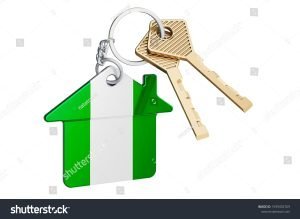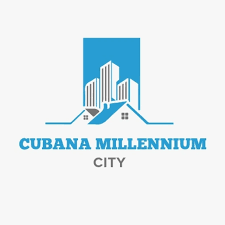Views: 10
How To Apply For A Mortgage Loan In Nigeria – Step-By-Step

Owning a home is one of the biggest financial goals for many Nigerians, but the high cost of real estate often makes it difficult to achieve without financial support. That’s where mortgage loans in Nigeria come in—helping individuals and families secure affordable housing through structured repayment plans. If you’re wondering how to apply for a mortgage loan in Nigeria, this step-by-step guide will walk you through the entire process, from eligibility requirements to documentation and bank approval. Whether you’re a first-time homebuyer or looking to invest in property, understanding how mortgage financing works in Nigeria will give you the confidence to take the right steps toward owning your dream home.
In today’s world, mortgage loans play a crucial role. Like many individuals, we all aspire to own a home, yet only a select few realize this dream. In certain cultural contexts, home-ownership is even considered a part of the “Nigerian Dream.” To move closer to achieving this dream, it’s important to gain some insights into how mortgage loans in Nigeria work. In this article, we will consider how mortgages work in Nigeria.
What Is a Mortgage?
A mortgage is a loan for acquiring or maintaining a residence, land, or other real estate. The borrower commits to repaying the lender gradually, usually through periodic payments allocated between principal and interest. The property is then employed as security to guarantee the loan.
How Does a Mortgage Loan Work?
Individuals and businesses utilize mortgages to acquire real estate without needing an immediate full purchase payment. The borrower gradually repays the loan along with interest over a specified number of years until they attain full ownership of the property.
Most conventional mortgages are fully amortizing, meaning the regular payment remains constant, but the division between principal and interest within each payment changes over the loan’s duration. Common mortgage terms are either 30 or 15 years.
Mortgages are alternatively referred to as property liens or property claims. If the borrower defaults on the mortgage, the lender can foreclose on the property.
How To Apply For a Mortgage Loan in Nigeria?
Mortgages offer the opportunity to purchase a house through installment payments. Given the Nigerian context, comprehending the mortgage loan process is essential.
Below, we outline the steps to get a mortgage loan in Nigeria.
- Have a verifiable means of income
When considering applying for a mortgage loan in Nigeria, the foremost step entails ensuring that you possess a verifiable source of income. Among the essential prerequisites scrutinized by mortgage banks, it is imperative to confirm the existence of an income stream capable of ensuring timely repayments throughout the loan’s tenure, thus averting any defaults. Mortgage institutions typically require comprehensive account statements spanning 6 to 12 months to ascertain this.
This stringent requirement is mandatory because mortgage loans inherently represent long-term financial commitments. Lenders are understandably cautious and reluctant to process or grant loans to individuals lacking a solid means of repayment. Therefore, possessing a verifiable and consistent source of income is an absolute necessity for anyone seeking approval for a mortgage loan.
- Possess a good credit report
Developing a strong credit history is an indispensable prerequisite when beginning to secure a mortgage loan. Your credit rating is pivotal in determining your eligibility for such financial undertakings. As a matter of policy, financial institutions are reluctant to extend loans to individuals with poor credit histories, so it’s necessary to maintain a good credit report.
The foundation of your credit rating largely rests on your financial history, particularly your past interactions with lending institutions. Instances where an applicant has previously borrowed from financial entities and failed to meet their repayment obligations significantly tarnish their credit score. Lenders view this blemished financial track record as a substantial risk, making it considerably more challenging to obtain a mortgage loan.
Therefore, a fundamental step in pursuing a mortgage loan is to work on enhancing and maintaining a positive credit rating diligently. This entails managing your financial obligations responsibly, settling existing debts promptly, and ensuring that your credit report reflects a history of reliability and fiscal prudence.
3. Search for a Property within your Affordability Range
After establishing a reliable source of income and achieving a favorable credit score, the subsequent step involves the quest for a property that falls within your financial means. While navigating this phase, it’s imperative to bear in mind a crucial criterion – the property’s legal status and title, which must support the creation of a valid mortgage. Such titles can include a Certificate of Occupancy or a registered Deed of Assignment.
The significance of a sound title cannot be overstated, as a flawed or defective title renders the property ineligible for mortgage financing from a bank. It is highly recommended to solicit guidance and counsel from your mortgage bank when contemplating a property purchase. This ensures you make an informed decision, safeguarding your investment and paving the way for a smooth mortgage application process.
- Review the Interest Rate
Most established Primary Mortgage Banks operating in Nigeria offer a valuable tool to potential borrowers – functional loan calculators readily accessible on their official websites. These online calculators are useful for individuals seeking insights into the expected monthly amortization for their prospective mortgage loans. However, it is crucial to comprehend that the calculator’s output is not an absolute or precise figure but rather an approximation.
When you engage with these loan calculators, they will provide an estimate, allowing you to gauge the potential financial commitment associated with your desired mortgage. These estimates are based on your input information, including the loan amount, interest rate, and loan tenure. While the results can provide a general idea of your financial obligations, it’s essential to acknowledge that the final amount may vary based on various factors, including any changes in interest rates or other terms during the loan approval process.
- Save up your Equity
Equity contribution refers to the upfront sum of money you can readily allocate toward acquiring a property. When applying for a mortgage loan in Nigeria, it’s important to recognize that providing Equity is one of the prerequisites.
Mortgage Banks typically require applicants to contribute a specific percentage of the property’s value as Equity. This percentage can vary, typically within the range of 20% to 50%, contingent upon factors such as the applicant’s creditworthiness or the risk assessment associated with their financial profile.
In essence, if you intend to secure a loan for purchasing a property, you must ensure that you have the necessary equity contribution available. Some Primary Mortgage Banks offer specialized products tailored to assist individuals in meeting their equity contribution requirements. These products are designed to facilitate the property acquisition process by providing options and flexibility to meet the equity obligations associated with mortgage loans.
- Consider All Other Charges
The next thing to consider is to assess your average monthly expenditures thoroughly. The maximum allowable repayment amount mustn’t surpass one-third of your net income. Additionally, it is essential to factor in various other expenses associated with obtaining a mortgage loan, such as administrative charges and the costs associated with perfecting the legal mortgage. These represent additional financial obligations that must be considered in the overall budgeting process for the loan.
To ensure full transparency and financial preparedness, it is advisable to consult with your account or loan officer regarding the specific charges that will be necessary during the mortgage application process. It is inadvisable to reach a midway point in the application process only to discover belatedly that mandatory fees must be addressed. Therefore, being proactive and informed about all associated costs is a prudent approach to embarking on the mortgage application journey.
- Gather all the Required Documents
Once you’ve decided to pursue a mortgage loan, the initial step is to assemble the necessary documents you will request. Some of the documents that will be required include a 6-12 months’ income account statement, an offer letter from the property seller or developer, a copy of your birth certificate or affidavit, a copy of your employment letter, a copy of your work ID, and a copy of the title document of the property you plan to purchase. Additionally, you may need to provide a letter of introduction from your employer, among other documents.
Ensuring these documents are prepared and readily available when approaching the Mortgage Bank for a loan is highly advisable. This proactive approach expedites the application process and demonstrates your readiness and commitment to the loan process. By having these documents in order, you contribute to a swift and efficient evaluation of your mortgage application.
- Approach A Mortgage Bank to Apply for the Mortgage Loan in Nigeria
After diligently following the outlined steps mentioned earlier, the subsequent action is to approach a Primary Mortgage Bank of your choosing based on your prior research. At this juncture, you’ll need to initiate the process of opening an account, which entails furnishing the bank with two passport photographs, a valid form of identification (such as a Driver’s license, National ID card, International passport, or Voter’s card), as well as a utility bill like an electricity or water bill.
Once the account is established, you can commence the mortgage application. By adhering closely to the prescribed steps and meeting the stipulated requirements, your loan application will undergo processing, leading you to the fulfilling realization of becoming a homeowner in no time.
- Get Prepared
Moving from receiving a complete monthly salary to entering a loan repayment phase demands significant financial discipline. The repayment period may extend anywhere from 5 to 10 years, or even more, contingent on your financial capability.
This entails mental preparedness and necessitates certain adjustments in your spending habits. Embracing this responsibility calls for steadfast dedication and diligent effort. However, the gratification is manifold; witnessing your family lead a comfortable life and reaping the rewards of your hard work culminates in realizing a cherished dream.
- Become Debt Free
With your mortgage fully paid, you can now contemplate activities that bring you joy and fulfillment. Whether it’s travel to exciting destinations, pursuing hobbies and interests, or engaging in experiences you’ve longed for, the possibilities are boundless. For instance, you can plan family trips that provide a break from the daily grind and foster bonding and cherished memories with your loved ones.
However, it’s crucial to emphasize that reaching this debt-free state hinges on one key principle – the unwavering commitment to pay your mortgage diligently. Adhering to your repayment schedule is the linchpin that ensures your path to financial freedom remains unobstructed. By doing so, you secure your home and pave the way for a future filled with the joys and adventures that life has to offer.
Conclusion
Before applying for mortgages, you must consider the amount you plan to deposit. Remember that there isn’t a fixed limit on the deposit amount – it varies based on your goals. If you opt for a smaller deposit, you’ll need a mortgage that covers a larger portion of the property’s value.
However, it’s worth noting that only a few mortgages provide high coverage due to the associated risks. Additionally, these options often come with less favorable fees and interest rates. It’s generally wise to save as much as possible for your deposit to secure the most favorable mortgage offers.
By kingkentus








You must be logged in to post a comment.